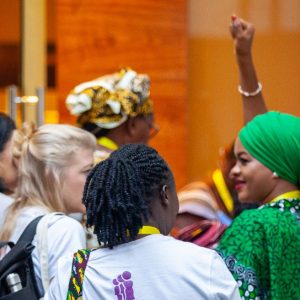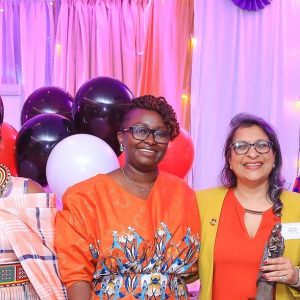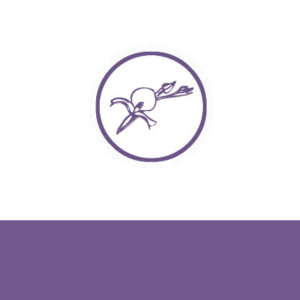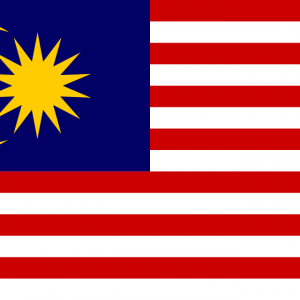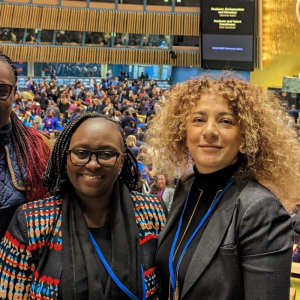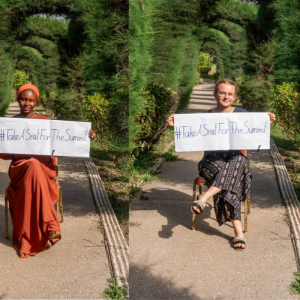‘Music, poetry and dance; that’s what really touches peoples hearts and minds’
These were the opening words of Tostan’s executive director Molly Melching as she introduced a special session which brought together 35 West African artists to discuss the role they can play to end female genital cutting. Sister Fa, the award-winning Senegalese hip-hop singer, whose ‘energy and enthusiasm is without par’, organised the Orchid-supported event that took place yesterday at Tostan’s headquarters in Dakar, Senegal.
The ‘day of reflection’, the first in a series of events which aim to put art at the service of development, introduced selected artists of the sub-region to the role of human rights in social norm change whilst providing a space to discuss the role they can play in raising awareness about development issues. Sister Fa, who was cut as a child herself and is now a passionate campaigner for ending the practice, spoke at length about the importance of harnessing the power of music to influence, persuade and sensitize: ‘I consider the artist as a teacher, someone who raises awareness, who educates. I really believe that artists can make a huge difference. They are the ones that young people like, that young people listen to. Through music you can give big messages.’
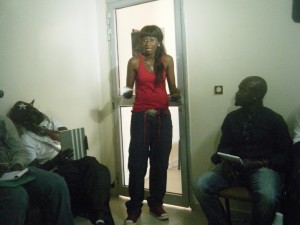
Sister Fa passionately describing the project
‘The artist as a teacher’
Sister Fa is a living example of this. Last year, she returned to her home village in the luscious Casamance region of Senegal to sing and dance to a human rights theme in front of thousands of young people in neighbouring communities. As a native of the Diola ethnic group and hence speaking their mother tongue, her efforts held greater sway than another Senegalese artist from a different region could hope to have. This is key, she affirmed, and matching artists to communities both in ethnic and linguistic terms was emphasised time and again during the day of reflection. Another important point raised by Ibrahima Mandia Diatta, Senegalese rapper, was the importance of diversifying their artistic means to reach a wider audience: ‘If people aren’t sensitive to rap, maybe they will be to theatre or dance’, he said.
‘Through music you can give big messages’
The ideas that bounced between the artists at the event foreshadow the growth of a regional campaign to amplify the human rights movement already rooted in the areas where Tostan is present. Sister Fa explained; ‘If I involve other artists in what I’m doing they can develop other ideas to promote human rights, perhaps different to what I’m doing. Alone I cannot go to every country. If other artists join me it will be an easier battle for me.’
One of those future collaborators, Alani Abdoussamadou, artist and comedian from Burkina Faso, affirmed that he had learnt a lot from this day of reflection: ‘I’m going to do the same kind of thing in Burkina Faso. I can’t change the world but I can and will try and develop these ideas further in my own country.’ Already involved in touring theatre productions around his home country to raise awareness about malnutrition, Alani Abdoussamadou will be returning to Senegal to collaborate with Sister Fa.

Alani Absoussamadou, musician from Burkina Faso
‘Believe what people are doing’
Sister Fa and Tostan have a long-standing collaboration in their mission to educate rural African communities about FGC, and specifically about the fact that it is a practice that can end. Since Tostan’s creation in 1991, over 6,000 West African communities have publically abandoned FGC, in an unprecedented grassroots movement sweeping the sub-region. Theatre and dance has always played a central role in Tostan’s methodology, so it comes as no surprise that the collaboration between Sister Fa and the Dakar-based organisation has proved so fruitful.
Sister Fa’s last words to her followers were a call for support: ‘In Senegal, artists are really trying to use their art to promote human rights, to assist their communities to help people, their sisters and brothers. I say to our listeners, believe what people are doing and if you can, please support this kind of initiative.’

Sister Fa at Tostan in Dakar
Sister Fa plans to hold a week-long workshop with selected artists to share best-practices on using art in the service of development. They will also be recording a compilation to distribute on her upcoming tour around Senegal in May.
Guest blog with many thanks to Tania Beard in Dakar.

